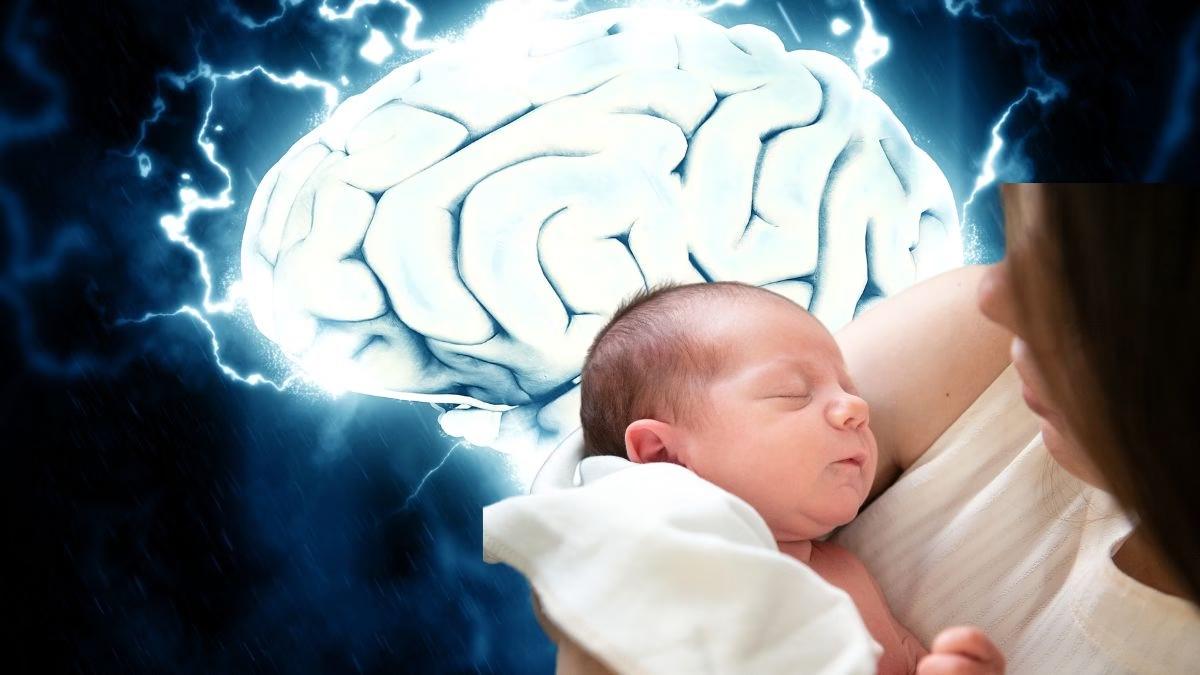Bringing a newborn into the world is an exciting and emotional experience, but for some parents, unexpected health challenges can arise. One serious concern is Newborn Brain Damage, which can result from complications during pregnancy, labor, delivery, or shortly after birth.
Understanding the early signs Newborn Brain Damage and seeking timely medical attention can make a significant difference in a child’s long-term health and development.
Table of Contents
What Causes Newborn Brain Damage?
Newborn Brain Damage can occur due to a variety of reasons, including:
- Lack of Oxygen (Hypoxia): Prolonged or severe oxygen deprivation during labor and delivery.
- Trauma During Delivery: Difficult births or the use of forceps and vacuum extractors.
- Infections: Maternal infections during pregnancy or infections in the baby post-delivery.
- Jaundice: Severe jaundice left untreated can lead to a condition called kernicterus, causing brain damage.
- Prematurity: Premature babies are more vulnerable to complications that can affect brain health.
Initial Indicators of Brain Injury in Newborns.
Physical Signs
Unusual Head Shape or Size
- A significantly smaller or larger head may indicate brain development issues.
- Swelling or bruising on the head from birth trauma.
Abnormal Muscle Tone
- Rigidity or looseness in the baby’s arms and legs.
- Difficulty moving or controlling their arms and legs.
Seizures
- Jerking movements, staring spells, or sudden stiffness may indicate neurological problems.
Feeding Difficulties
- Trouble latching or swallowing can signal poor coordination linked to brain function.
Delayed Reflexes
- Weak or absent reflexes, such as the Moro (startle) reflex or rooting reflex, may be concerning.
Behavioral Signs
Excessive Irritability or Lethargy
- Babies who cry excessively or are unusually drowsy may be experiencing discomfort or neurological issues.
Difficulty Staying Awake
- A baby who struggles to wake or respond to stimulation could have underlying brain injury.
Abnormal Breathing Patterns
- Irregular breathing or frequent pauses (apnea) may indicate nervous system dysfunction.
Developmental Delays
Missed Milestones
- Not meeting developmental milestones such as lifting their head, rolling over, or smiling can be an early red flag.
Poor Eye Contact or Tracking
- Difficulty focusing on objects or making eye contact may signal a neurological problem.
When to Seek Medical Attention
If you notice any of these signs, it’s important to consult a pediatrician or neonatologist promptly. Early diagnosis can lead to interventions that may improve outcomes, such as:
- Physical Therapy: Helps with muscle tone and movement.
- Occupational Therapy: Supports feeding and developmental skills.
- Speech Therapy: Assists in communication and feeding challenges.
- Medications: Treat conditions like seizures or infections.
Real-Life Example: Recognizing the Signs
Case Study: A baby boy, Max, experienced a difficult delivery involving oxygen deprivation. Shortly after birth, he had weak reflexes and was unresponsive. Over the first three months, his parents noticed he wasn’t meeting developmental milestones like lifting his head or smiling.
A pediatric neurologist diagnosed him with hypoxic-ischemic encephalopathy (HIE), a type of brain injury caused by oxygen deprivation. With physical therapy and early intervention, Max showed significant improvement in motor skills by age two.
This example illustrates the importance of vigilance and prompt medical care.
Diagnosing Brain Damage in Newborns
Doctors may use the following tools to diagnose and assess the extent of brain damage:
- Imaging Tests: MRI or CT scans to visualize the brain.
- Neurological Exams: Assessing reflexes, tone, and motor function.
- Blood Tests: Checking for infections or metabolic issues.
- EEG: Tracking brain activity to identify seizures or unusual patterns.
Hope and Support for Parents
A diagnosis of brain damage in a newborn can be overwhelming, but early intervention and support can make a significant difference. Many children go on to lead fulfilling lives with the right therapies and care.
- Support Groups: Connecting with other families can provide emotional and practical support.
- Specialist Care: Regular visits with neurologists, therapists, and developmental pediatricians ensure comprehensive care.
- Educational Resources: Programs tailored to children with developmental challenges can help them thrive.
Final Thoughts
Recognizing the signs of brain damage in a newborn is the first step toward getting the help your baby needs. If you have concerns, trust your instincts and seek medical advice. With early intervention and the right care, there is hope for a brighter future for your child.
Have questions or concerns about newborn health? Leave a comment or consult a pediatric specialist for guidance.
FAQs
Can a newborn recover from brain injury?
Babies who are born with a slight degree of brain damage might have the potential to fully recover.
What can cause brain damage in an infant?
Lack of Oxygen (Hypoxia), Trauma During Delivery, Infections, Jaundice, Prematurity can cause brain damage in an infant
Also Read What Causes Prominent Veins Beneath the Eyes and How they can be treated

